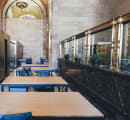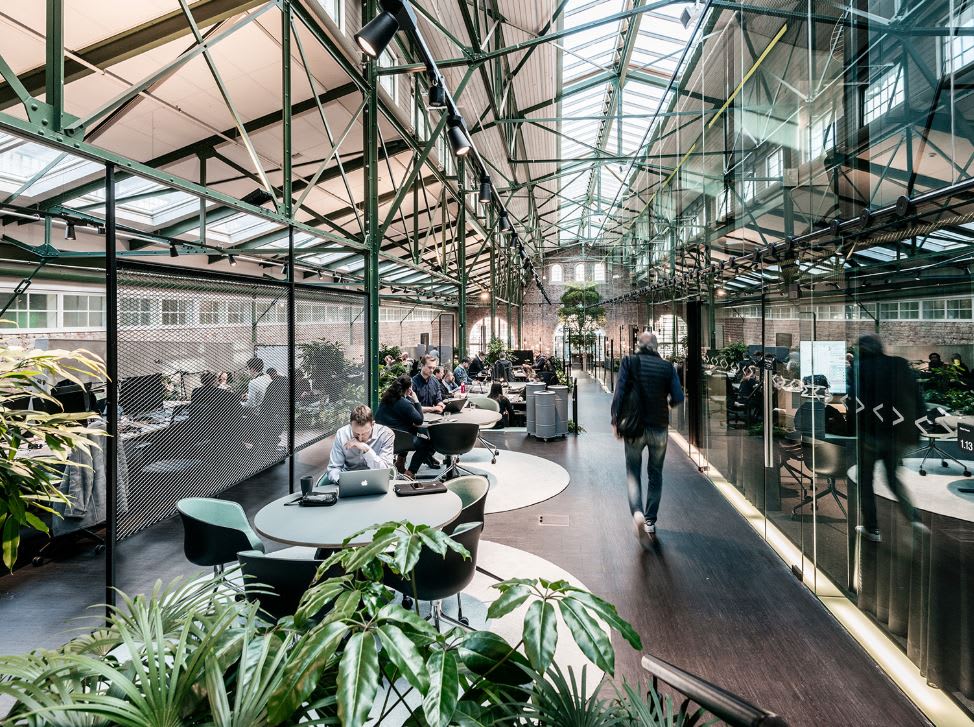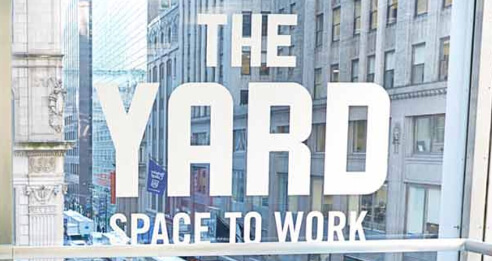
Largest Coworking Companies


In the past few years the coworking industry has evolved and adapted to various economic influences and technological advances. More spaces are embracing their role as centers for innovation and collaboration in addition to simply being a cool, affordable place to work. Norrsken House, founded in 2017 in Stockholm, embodies this movement as a space that specifically targets companies driven by social impact. We sat down with General Manager, Thom Feeney, to get some insight on how Norrsken House has used technology to not only streamline daily operations but also serve its mission of positive social impact.

Apart from Kisi, one of the technologies that we use is Envoy. I think it helps both our team and the members so we don't have a permanent receptionist or front desk person. We just set up a couple of iPads and they can sign in from there. Our members then get pinged with a text message or an email and the system automatically prints out a named sticker for the guest. So for us it means that we don't need a member of staff permanently at reception. And for the members, it means that they don't need to hang around near the entrance waiting for people.
OfficeRnD has also offered a bit of functionality that we've just implemented on the meeting rooms. So we've got little Lenovo pads in every room on the wall so people can check-in for their meeting when they get there. If they haven't checked in within 15 minutes of the scheduled meeting time, then the meeting gets dropped and that has freed up so much space across the building because we've all been in situations where you book a meeting and then something changes and it creates a delay among several groups of people.
From our side, it's the convenience of being able to set up access at any time from anywhere. Kisi greatly improved upon our old system, which basically ran on something like Windows 95 and was hellish! Before Kisi, we basically needed to be in the building, and at one specific computer. We had an access issue a couple of weeks ago which we were able to sort it out from home and unlock the doors. We have a lot of events and sometimes we need to quickly customize a local lock or certain areas within the space. For members, the main advantage is that with Kisi we can set everything up very quickly. We can sign somebody up and give them access within minutes. Most people are using Kisi from their phone, just downloading the app and getting into the space.
In Sweden people are used to the latest technology like this and more people are moving abandoning credit cards and keycards as well. I've been living here for 3 years and I think I've only withdrawn cash once! One of my colleagues carries his travel pass on his phone, his access to the house on his phone, everything. He keeps his debit card with him just as a backup, but that's the only thing that he has other than his phone. So, yeah, as a whole, the management of Norrsken House is very focused on mobile and cloud-based technology. In central Stockholm we've got a fantastic testbed for new tech and particularly in Norrsken House where you've got lots of technology companies and people that are open to trying out new things.
We have Kisi in the main entrance and, while we don't have it on conference and meeting room doors, we have Kisi readers on things like our specialist rooms, the studio where people can film and do podcast recordings. And then the entrance gates at the front of the building. We also use it for our event space, which is a separate area as well.

I think because we're relatively new to the coworking industry (the space just opened at the beginning of 2017), technology was definitely a factor that was in place right from the beginning. It wasn't so much about streamlining operations as just something that we built in right from the start. We were founded by Niklas Adalberth, a co-founder of the unicorn payments company, Klarna which contributes to everything we do having a strong push towards optimization and making people’s lives easier. We're always looking to automate repetitive tasks.
For example, because of OfficeRnD, we were able to basically get rid of 15% of all unnecessary or wrongly-scheduled bookings, which is massive in terms of saving time and operation costs.
Our space is primarily for social impact entrepreneurs and one of the things that meant a lot to us while searching for the location was having a fantastic space to offer them. Usually, if you're in these kinds of industries, trying to change the world and not just focus on profit, then you're often sort of sidelined into a second rate office on the outskirts of town. One of the main things for us was finding a place that was well-connected, in a busy area with plenty of restaurants and nice places to go during lunch. And also finding somewhere that was light and airy, where people could feel free. There’s a very Scandinavian feel to it!
Another interesting factor: there was a 25-foot tall tree in the reception area when we took the building. We've kept the tree and added tons of plants all around the building. There’s also lots of natural light coming in because of the skylights. That feeling of being in nature while you’re indoors is really important to us.
Well for one thing, in front of the building we have a cafe that is completely vegan. Reducing the environmental effects of eating meat is quite important to our brand. We also stock the building with non-disposable utensils and dishware to help with recycling.
Our electricity supplier sources all their energy from green sources. But to be honest, in Sweden that’s not that unusual.
We’ve also just upgraded our taps with the help of a company called Altered, who were one of the finalists in our Norrsken Impact Awards. They install nozzles on the end of the taps which save up to 98% of our water usage, by turning the water into a fine mist. There’s a switch on them to change them to only 85% water saving, if you want the water to run a little faster. They’re really impressive!
The split that we really focus on is between impact entrepreneurs and non-impact. 70% of our members are what we call impact entrepreneurs, meaning they are trying to do good in the world. And about 30% are just standard entrepreneurs. The biggest company that we have in the house is only 12 people. But the average size is two to four people per company. They're quite early-stage startups. We don't have many people who are just freelancers because we tend to attract businesses that already have consultants, a founder and 2-3 people.
We have about 360 members and about 50 of those are in private offices. The remaining ~300 are in hot desk spaces. We don't have any dedicated desk space.
Actually, we have not but it’s definitely something we're interested in! Although we've got 360 members we probably only have 180 of those in the building on any given day. We’d like to increase our capacity, without getting so busy or crazy that it affects members, but we want to create a buzz in the house, so the monitoring and tracking features on the Kisi dashboard is definitely something I'll be looking at in the new year as we work on that.
Save your community manager 41 hours each week—learn how The Yard did it with cloud-based access control.
Read the Case StudyCoworking Space Management Guide
A comprehensive guide to help you manage your coworking space.
Free access to our best guides, industry insights and more.
